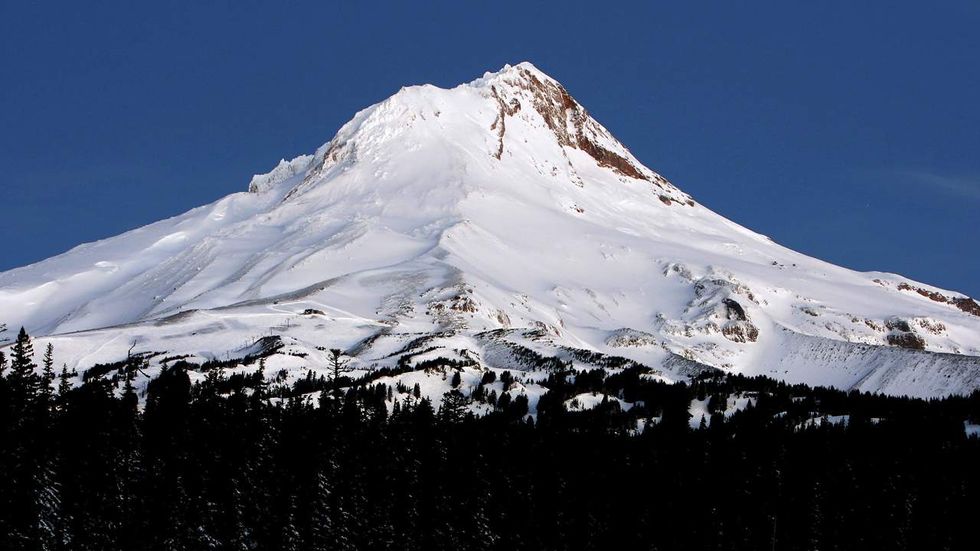During the past decade, a common theme in the research findings of climate alarmists studying California, Oregon, and Washington state has been reduced snowfall. Some alarmists even lamented it could be “the end of snow,” as Porter Fox did for the New York Times in 2014. Yet, despite these extreme predictions, which also blamed humans for burning the fossil fuels that caused the warmer temperatures, the 2017 winter has provided the region with greater snowfall, leaving climate change advocates looking more than just a little foolish.
According to a report by the Los Angeles Times, the snowpack in California’s Sierra Nevada Mountains is the seventh-deepest it’s been since 1950 and the biggest since 2011.
“As of Thursday, the snowpack across the entire Sierra was at 164% of average for this time of year,” reported the Times. “The northern region was at 147%, the central was at 175% and the southern was 164% of average, respectively, state data showed.”
Writing for the Washington Policy Center, Todd Myers, the organization’s director of the Center for the Environment, reported on Wednesday there is “no sign of warming” in Washington state. Among Myers’ “key findings” is that despite the fact “academics, like U.W. Professor Paul Johnson, say that declining snowpack levels in the Northwest is a sign of global warming,” “They’re wrong. Snowpack levels have been above average in eight of the last ten years.”
Myers also wrote, “In the winter of 2015-16 snowpack was 112% of normal. In 2016-17 it was 115% of normal.”
The Bend, a newspaper in central Oregon, reported in January the central Oregon region had received "historic snow depths" that smashed records going back at least 20 years.
These findings are in total contradiction to the claims made by climate change alarmists over the past decade. For instance, in 2015, climate change researchers at the University of Arizona claimed their findings revealed the “extreme character” of the Sierra Nevada snowpack and the changing nature of California winters.
“Our study really points to the extreme character of the 2014-15 winter,” said Valerie Trouet, a professor at the University of Arizona’s Laboratory of Tree-Ring Research. “This is not just unprecedented over 80 years—it’s unprecedented over 500 years.”
“We should be prepared for this type of snow drought to occur much more frequently because of rising temperatures,” Trouet said. “Anthropogenic warming is making the drought more severe.”
Summarizing research conducted on the Pacific Northwest and climate change, the U.S. Fish and Wildlife Service wrote on its website in October 2011, “Increases in extreme high precipitation (falling as rain) in the western Cascades and reductions in snowpack are key projections from high-resolution regional climate models.”
As recent data clearly show, nothing could be further from the truth.



